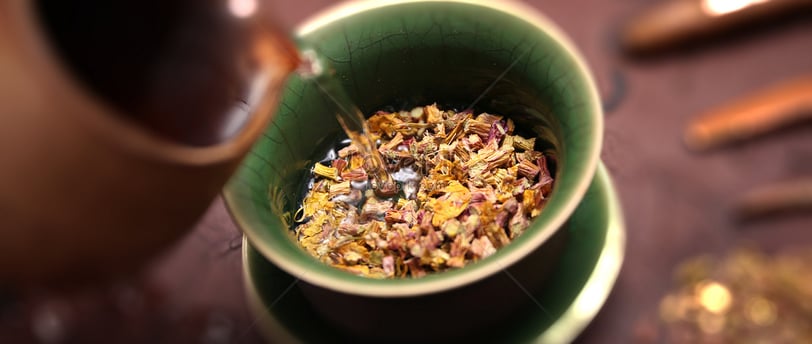The Floral Elixir: Dendrobium Officinale and Its Journey from Orchid to Medicine
Fan Cheng
3/28/20242 min read


The Floral Elixir: Dendrobium Officinale and Its Journey from Orchid to Medicine
Orchids have long been admired for their beauty and elegance. These delicate flowers come in a variety of colors and shapes, captivating the senses with their enchanting fragrance. However, there is one particular orchid that goes beyond its aesthetic appeal – Dendrobium officinale. This remarkable flower has been used for centuries in traditional Chinese medicine and has recently gained popularity in the Western world for its numerous health benefits.
Ancient Origins and Traditional Uses
Dendrobium officinale, also known as the "Shi Hu" in Chinese medicine, has a rich history dating back over 2,000 years. It was first recorded in the ancient Chinese medicinal text, "Shennong Ben Cao Jing," which documented various plants and their therapeutic properties.
In traditional Chinese medicine, Dendrobium officinale is believed to have a cooling and nourishing effect on the body. It is often used to promote the production of bodily fluids, relieve thirst, and improve digestion. Additionally, it is thought to strengthen the immune system, enhance vision, and support overall vitality and longevity.
For centuries, Dendrobium officinale has been prepared as a herbal tea or decoction. The dried stems of the orchid are boiled in water to extract its beneficial compounds, creating a fragrant and flavorful elixir.
Modern Research and Health Benefits
Recent scientific studies have shed light on the medicinal properties of Dendrobium officinale, confirming many of its traditional uses and uncovering new potential health benefits.
One of the key components of Dendrobium officinale is a group of polysaccharides, which have been found to possess antioxidant and anti-inflammatory properties. These compounds help protect the body against oxidative stress and reduce inflammation, which are underlying factors in various chronic diseases.
Furthermore, Dendrobium officinale has been shown to have immunomodulatory effects, meaning it can regulate the immune system. This can be particularly beneficial in boosting the body's defenses against infections and supporting overall immune function.
Studies have also indicated that Dendrobium officinale may have neuroprotective properties, potentially protecting against age-related cognitive decline and neurological disorders. Its antioxidant and anti-inflammatory actions contribute to these neuroprotective effects.
In addition to its physical health benefits, Dendrobium officinale has been associated with mood enhancement and stress reduction. Traditional Chinese medicine believes that this orchid has a calming effect on the mind, helping to alleviate anxiety and promote a sense of well-being.
Harvesting and Sustainability
Due to the increasing demand for Dendrobium officinale, there are concerns about its sustainability and conservation. The orchid is primarily found in the mountains of China, where it grows in a symbiotic relationship with specific fungi.
Harvesting Dendrobium officinale involves carefully removing the stems without damaging the plant. The stems are then dried and processed for medicinal use. However, overharvesting and habitat destruction have led to a decline in wild populations.
Efforts are being made to cultivate Dendrobium officinale in controlled environments to meet the demand while preserving wild populations. Sustainable farming practices and conservation initiatives are crucial to ensure the long-term availability of this valuable medicinal orchid.
Conclusion
Dendrobium officinale, the floral elixir, has come a long way from being a beautiful orchid to becoming a cherished medicinal plant. Its journey from traditional Chinese medicine to modern scientific research has revealed its remarkable health benefits, ranging from immune support to neuroprotection.
However, it is important to approach the use of Dendrobium officinale with respect for its ecological sustainability. Conservation efforts and responsible harvesting practices are essential to preserve this precious orchid for future generations to benefit from its therapeutic properties.
As we continue to explore the wonders of nature, Dendrobium officinale stands as a testament to the profound connection between plants and medicine.
